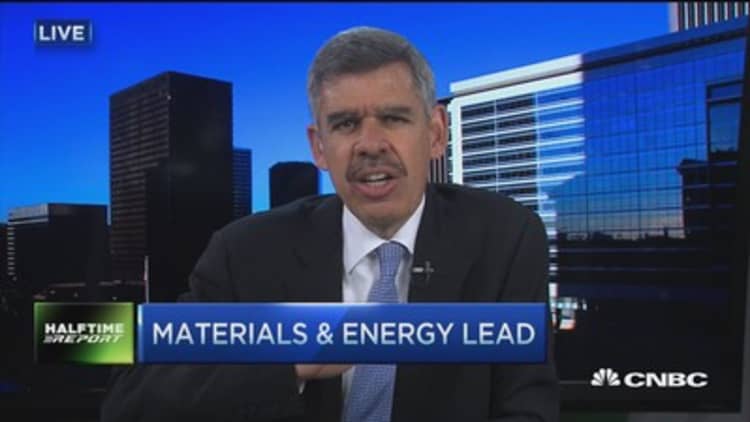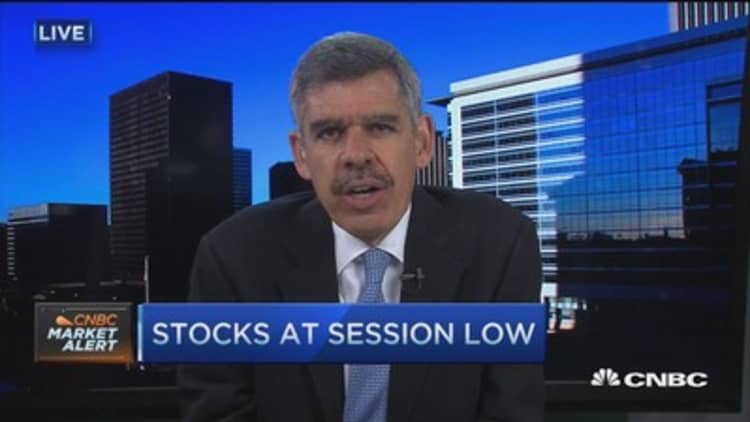


Emerging markets have come "completely unhinged," and their struggles will likely drag on growth in the United States and Europe, widely followed market watcher Mohamed El-Erian said Thursday.
On CNBC's "Fast Money: Halftime Report," the Allianz economic advisor said solid economic trends in the U.S. may not be enough to offset sagging growth in other pockets of the world.
"It's not that powerful to pull everybody out," he said, adding that emerging market troubles could drag Europe into a recession.
Read MoreWorld Bank's Kim: Growth slower for emerging markets
El-Erian's remarks follow similar comments from World Bank President Jim Yong Kim and International Monetary Fund Managing Director Christine Lagarde. Both told CNBC this week that emerging markets face significant headwinds.
El-Erian noted that global growth problems come at a particularly troubling time for the Federal Reserve, which faces the task of deciding when to raise its short-term interest rate target for the first time in nearly a decade. The U.S. central bank highlighted global trends and possible downward pressure on inflation after voting not to raise rates last month.
He argued that the Fed could hike interest rates later this year at an inopportune time.
"There's a risk that the Fed does the right thing at the wrong time," El-Erian said.
Read MoreIMF's Lagarde: More volatility likely for emerging markets
Those factors will contribute to a "secular rise in volatility" for the rest of the year, El-Erian contended. In that environment, stocks with good and bad fundamentals could trade together, prices may overshoot and occasional rallies will be "really strong."
He noted that investors should look at suffering stocks with strong underlying businesses as well as sectors that have struggled in recent months.


